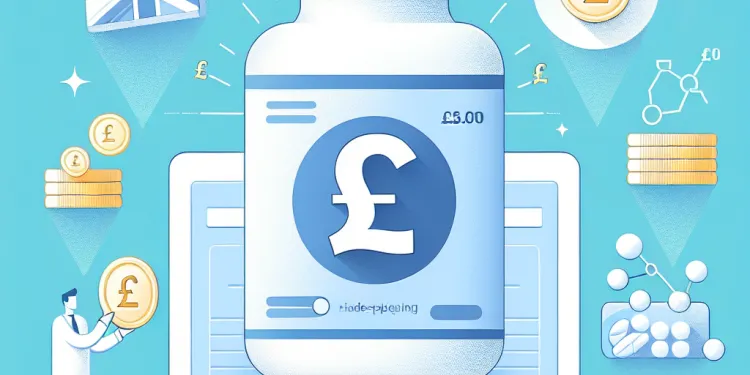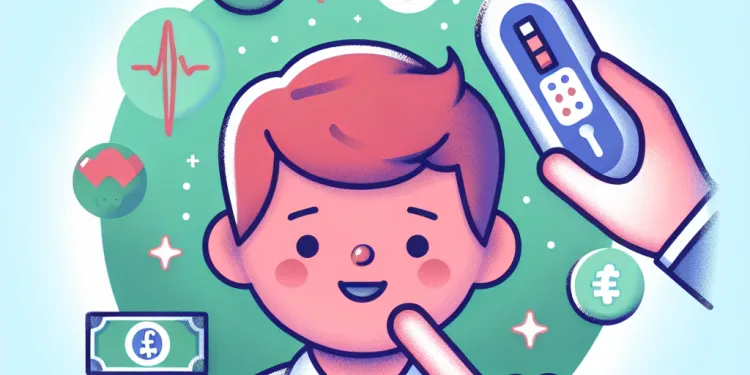
Find Help
More Items From Ergsy search
-

Are Aspirin and Ibuprofen the same?
Relevance: 100%
-

Can I take Aspirin and Ibuprofen together?
Relevance: 92%
-

What is the difference between Aspirin, Paracetamol, and Ibuprofen?
Relevance: 89%
-

What is the difference between aspirin, paracetamol, and ibuprofen?
Relevance: 88%
-
Can aspirin interact with other medications?
Relevance: 58%
-

What is Ibuprofen?
Relevance: 56%
-

What is Aspirin?
Relevance: 52%
-

Is it safe to use aspirin to treat chickenpox symptoms?
Relevance: 51%
-

What are the side effects of Ibuprofen?
Relevance: 50%
-

Is it safe to take Paracetamol with Ibuprofen?
Relevance: 49%
-

Is Paracetamol the same as Aspirin?
Relevance: 49%
-

Can I use Ibuprofen for menstrual pain?
Relevance: 48%
-

Can Ibuprofen be used to reduce inflammation?
Relevance: 48%
-

What are the side effects of Aspirin?
Relevance: 48%
-

Which one is better for toothache: Ibuprofen or Paracetamol?
Relevance: 46%
-

Can aspirin stop colorectal cancer?
Relevance: 45%
-

Can aspirin help in reducing the risk of strokes?
Relevance: 44%
-

Is aspirin recommended for everyone to prevent colorectal cancer?
Relevance: 44%
-
Is aspirin effective in preventing other types of cancer?
Relevance: 44%
-
Has the FDA approved aspirin for cancer prevention?
Relevance: 44%
-

What should I do if I'm considering aspirin for cancer prevention?
Relevance: 44%
-

Which one is better for headaches: Aspirin or Paracetamol?
Relevance: 44%
-
Should individuals with certain medical conditions avoid aspirin?
Relevance: 43%
-

How does aspirin work to reduce cancer risk?
Relevance: 43%
-

Has aspirin been proven to cure colorectal cancer?
Relevance: 43%
-

What dosage of aspirin is considered effective for cancer prevention?
Relevance: 43%
-

Which medication should be avoided for children with fevers?
Relevance: 42%
-

Can I take ibuprofen and paracetamol together? - Common Health Questions | NHS
Relevance: 42%
-
How long do studies suggest taking aspirin for cancer prevention?
Relevance: 42%
-

What do health organizations say about aspirin and cancer prevention?
Relevance: 42%
-

Should people with a family history of colorectal cancer take aspirin?
Relevance: 41%
-
Is aspirin more effective for certain age groups in preventing colorectal cancer?
Relevance: 41%
-

What is Aspirin?
Relevance: 39%
-

Can aspirin prevent colorectal cancer?
Relevance: 33%
-

Are there risks associated with taking aspirin regularly?
Relevance: 33%
-
Are there ongoing studies about aspirin and colorectal cancer?
Relevance: 31%
-

What is a common use of paracetamol?
Relevance: 26%
-

Do over-the-counter medications help in preventing heart attacks and strokes?
Relevance: 25%
-

Does Paracetamol reduce inflammation?
Relevance: 24%
-

Are there specific medications that can cause tinnitus?
Relevance: 22%
Introduction
Aspirin and ibuprofen are both commonly used medications known for their pain-relieving and anti-inflammatory properties. Despite these similarities, they are distinct drugs with different active ingredients, mechanisms of action, and uses. Understanding the differences between them is important for making informed choices about their use, particularly in managing pain and inflammation.
Active Ingredients and Mechanism of Action
Aspirin, known chemically as acetylsalicylic acid, works by inhibiting the production of certain natural substances in the body that cause inflammation and pain. It is classified as a non-steroidal anti-inflammatory drug (NSAID) and has additional blood-thinning properties that can reduce the risk of heart attack and stroke when used in low doses.
Ibuprofen is also an NSAID but belongs to the group called propionic acid derivatives. It works by blocking the cyclooxygenase (COX) enzymes, which are involved in the production of prostaglandins—compounds associated with pain, fever, and inflammation. Unlike aspirin, ibuprofen has a more temporary effect on platelet function and is not typically used for its blood-thinning ability.
Common Uses
Aspirin is widely used to relieve mild to moderate pain, reduce fever, and decrease inflammation. Because of its antiplatelet effects, it is commonly recommended in low doses to prevent blood clots in individuals with cardiovascular diseases. It is also used in the prevention of recurrent heart attacks and strokes.
Ibuprofen is similarly used to alleviate a range of issues, including headaches, toothaches, menstrual cramps, muscle aches, and arthritis. Due to its fast-acting nature, ibuprofen is often preferred for acute pain relief. It is available in various forms, including tablets, liquid suspensions, and topical gels.
Side Effects and Cautions
Both aspirin and ibuprofen can cause side effects, particularly if used improperly or by people with certain health conditions. Aspirin, for instance, can lead to stomach irritation and increase the risk of bleeding, especially in individuals with peptic ulcers or those taking other blood-thinning medications.
Ibuprofen, while generally well-tolerated, can also cause gastrointestinal problems, including ulcers and bleeding. Long-term use or high doses may lead to an increased risk of heart attack or stroke. It is important to follow recommended dosages and consult with a healthcare provider when considering their use, especially if you have existing health issues or are taking other medications.
Conclusion
In summary, while aspirin and ibuprofen serve similar purposes in pain and inflammation management, they are different drugs with distinct properties. Choosing between them should be based on individual health needs, existing medical conditions, and specific advice from healthcare professionals.
Introduction
Aspirin and ibuprofen are medicines that help with pain and swelling. They work in different ways and have different ingredients. It is important to know how they differ to make good choices about when to use them for pain and swelling.
Active Ingredients and How They Work
Aspirin is a medicine that stops certain natural chemicals in the body from causing pain and swelling. It is called a non-steroidal anti-inflammatory drug (NSAID). Aspirin also helps thin the blood, which can prevent heart attacks and strokes if taken in small amounts.
Ibuprofen is another NSAID, but it works differently. It blocks something called COX enzymes, which help make chemicals that cause pain and swelling. Ibuprofen does not have the same blood-thinning effect as aspirin.
Common Uses
Aspirin helps with mild to moderate pain, lowers a fever, and reduces swelling. People also take it in small amounts to prevent heart attacks and strokes.
Ibuprofen helps with headaches, toothaches, cramps, muscle pain, and arthritis. It works quickly, so it's good for fast pain relief. You can find it as tablets, liquid, or cream.
Side Effects and Warnings
Both aspirin and ibuprofen can cause side effects if not used properly. Aspirin can hurt your stomach and increase bleeding, especially if you have ulcers or take other blood-thinning medicines.
Ibuprofen can also cause stomach issues and might lead to ulcers or bleeding. Using too much can increase the chance of a heart attack or stroke. You should follow the dosage instructions and talk to a doctor if you have health problems or take other drugs.
Conclusion
Aspirin and ibuprofen help with pain and swelling but are different. You should choose based on your health needs and talk to a doctor for advice.
Frequently Asked Questions
What is aspirin?
Aspirin is a medication used to reduce pain, fever, or inflammation. It is also used as an antiplatelet agent to prevent blood clots.
What is ibuprofen?
Ibuprofen is a nonsteroidal anti-inflammatory drug (NSAID) that is used to relieve pain, reduce inflammation, and lower fever.
Are aspirin and ibuprofen the same?
No, aspirin and ibuprofen are not the same. They are different types of medications with different mechanisms of action and uses.
Can aspirin and ibuprofen be taken together?
It's not generally recommended to take aspirin and ibuprofen together without consulting a healthcare provider, as they can increase the risk of side effects such as gastrointestinal bleeding.
What class of drug is aspirin?
Aspirin is classified as a salicylate and also an antiplatelet agent.
What class of drug is ibuprofen?
Ibuprofen is classified as a nonsteroidal anti-inflammatory drug (NSAID).
Do aspirin and ibuprofen have the same side effects?
Aspirin and ibuprofen may have similar side effects such as gastrointestinal issues but they also have distinct side effects unique to each drug.
Can both aspirin and ibuprofen reduce fever?
Yes, both aspirin and ibuprofen can reduce fever.
Is ibuprofen more effective as a pain reliever than aspirin?
Ibuprofen is often considered more effective for pain relief than aspirin for certain types of pain, but this can vary between individuals.
Can aspirin be used as an anti-inflammatory agent?
Yes, aspirin can be used as an anti-inflammatory agent, though it is generally used in lower doses for its antiplatelet effects.
Can aspirin prevent heart attacks?
Aspirin can help prevent heart attacks by reducing the formation of blood clots.
Is ibuprofen safe for long-term use?
Long-term use of ibuprofen should be done under the supervision of a healthcare provider due to potential risks like gastrointestinal bleeding and cardiovascular issues.
What are some brand names of aspirin?
Some common brand names for aspirin include Bayer, Bufferin, and Ecotrin.
What are some brand names of ibuprofen?
Some common brand names for ibuprofen include Advil, Motrin, and Nurofen.
Is it true that ibuprofen does not affect blood clotting?
Ibuprofen can affect blood clotting, but usually to a lesser extent than aspirin, which is often used specifically for this purpose.
How does aspirin work?
Aspirin works by inhibiting enzymes involved in the production of substances that promote inflammation, pain, and fever.
How does ibuprofen work?
Ibuprofen works by inhibiting the cyclooxygenase (COX) enzymes, which are involved in the inflammatory process.
Is aspirin recommended for children?
Aspirin is not generally recommended for children due to the risk of Reye's syndrome.
Can ibuprofen be given to children?
Yes, ibuprofen can be given to children in appropriate doses and formulations designed for pediatric use.
Who should avoid taking aspirin?
People with conditions like peptic ulcer disease, certain types of asthma, or a history of gastrointestinal bleeding should avoid aspirin unless advised by a healthcare provider.
What is aspirin?
Aspirin is a type of medicine. It helps if you have pain or a fever. Make sure to ask a grown-up or a doctor before you take it.
Tools to help you check: Use pictures or talk to someone who knows about medicine.
Aspirin is a strong medicine. It helps when you have pain, feel hot from a fever, or when parts of your body are swollen. It can also help stop blood from sticking together and making clots.
What is ibuprofen?
Ibuprofen is a type of medicine.
It helps when you have pain or a fever.
If you hurt yourself or have a headache, ibuprofen can help you feel better.
Ask an adult if you can take ibuprofen.
Always follow the instructions on the medicine box.
You can use a timer to help you remember when to take it.
Ibuprofen is a medicine. It helps with pain, swelling, and high temperature.
Are aspirin and ibuprofen the same?
No, aspirin and ibuprofen are not the same. They are different medicines. Both can help with pain and swelling, but they work in different ways.
If you find reading hard, you can ask someone to read it out loud to you. You can also use picture cards to help understand. Remember to always ask a doctor if you have questions about medicines.
No, aspirin and ibuprofen are not the same. They are different types of medicine. They work in different ways and are used for different things.
Can you take aspirin and ibuprofen at the same time?
Aspirin and ibuprofen are medicines. They help with pain and fever.
But, it is not safe to take them together. They can cause problems in your stomach and other parts of your body.
If you need help for pain, talk to a doctor or a nurse. They will tell you what is safe for you.
Use simple tools like reminder notes or alarms on your phone to help you with taking medicine safely.
You should not take aspirin and ibuprofen at the same time without asking a doctor or nurse. This can make your tummy hurt and cause bleeding.
What kind of medicine is aspirin?
Aspirin is a type of medicine.
It's used to help with pain and swelling.
If you want to learn more, you can:
- Ask a doctor or nurse.
- Use picture cards to help understand.
Aspirin is a type of medicine called a salicylate. It also helps stop blood cells from sticking together.
What type of medicine is ibuprofen?
Ibuprofen is a type of pain medicine. It helps to make pain and swelling go away. If you have a headache or a sore muscle, ibuprofen can help.
If you find reading tricky, ask someone you trust to help explain or read it for you. Picture cards or videos about medicine can also help you understand better.
Ibuprofen is a type of medicine. It helps with pain and swelling. This kind of medicine is called an NSAID.
Do Aspirin and Ibuprofen Cause the Same Problems?
Aspirin and Ibuprofen are medicines.
They can both help if you are in pain or have a fever.
But they might cause different problems. These are called side effects.
It is important to only take the medicine that the doctor tells you to.
If you feel bad after taking a medicine, tell an adult or the doctor.
Using a phone or tablet to look up pictures or videos can help explain more about these medicines.
Aspirin and ibuprofen can both upset your stomach or gut, which means they might give you a tummy ache. They can also have their own special side effects that are different from each other.
Can aspirin and ibuprofen both help bring down a fever?
A fever means your body is hotter than normal.
Aspirin and ibuprofen are medicines that can help make you feel cooler if you have a fever.
It is important to ask a doctor or adult before taking these medicines.
Some people use a thermometer to check if they have a fever.
Drink lots of water and rest if you have a fever.
Aspirin and ibuprofen can help when you have a fever. They can make you feel better.
Is ibuprofen better for pain than aspirin?
Ibuprofen and aspirin help when you are hurt or in pain.
Sometimes, ibuprofen might work better for you.
Other times, aspirin might be a better choice.
If you are not sure which one to use, you can ask a doctor or pharmacist.
Try using pictures or videos to understand better.
Ibuprofen can work better for pain than aspirin. But, it might depend on the person.
Can aspirin help with swelling and pain?
Yes, aspirin can help reduce swelling and pain. But usually, people take it in smaller amounts to stop blood clots.
Can aspirin stop heart attacks?
Aspirin is a type of medicine. Some people think it can stop heart attacks. But you should talk to a doctor first. Only doctors can say if it is safe for you.
Here are some things to help you understand:
- Heart attack: This is when your heart cannot get enough blood.
- Aspirin: This medicine can help with pain. It might also help stop blood clots in the heart.
What you can do:
- Ask a doctor if aspirin is good for you.
- Use easy reading tools to help understand health words.
- Watch health videos for more information.
Remember: Always ask a doctor about medicine.
Aspirin is a medicine. It can help stop heart attacks. It does this by stopping blood clots from forming.
Is it safe to take ibuprofen for a long time?
If you take ibuprofen for a long time, a doctor should check on you.
Taking ibuprofen for a long time can hurt your stomach and heart.
What are some brand names of aspirin?
Aspirin is medicine that helps with pain and fever.
Some brands of aspirin are:
- Bayer
- St. Joseph
- Bufferin
- Excedrin (has aspirin in it)
If you find reading hard, ask someone to read it to you.
Use picture cards or draw the names to remember them better.
Some popular names for aspirin are Bayer, Bufferin, and Ecotrin.
What are some brand names for ibuprofen?
Here are some brand names for ibuprofen you might know:
- Advil
- Motrin
- Nurofen
These are names you might see at the store or hear from a doctor.
If it helps, you can use pictures or ask someone to read it with you to understand better.
Ibuprofen is a kind of medicine. Some brand names for it are Advil, Motrin, and Nurofen.
Does ibuprofen change how blood clots?
Does ibuprofen make it harder for blood to stick together and form a clot?
Tip: If you have trouble reading hard words, ask someone to help you, or use a text reader app.
Ibuprofen can change how blood clots, but it usually doesn't do it as much as aspirin does. Aspirin is used to help blood clotting on purpose.
How does aspirin work?
Aspirin is a type of medicine. It helps when you have pain or if you are sick. Aspirin works by stopping the body from making something called "prostaglandins." Prostaglandins can cause pain and swelling.
If you have a headache or your body hurts, aspirin can help you feel better. It can also help cool down a fever.
To make it easier to understand, you can ask someone to explain it to you. You can also use pictures or videos online that talk about how aspirin works.
Aspirin helps by blocking tiny parts in your body. These parts make things that cause swelling, pain, and feeling hot.
How does ibuprofen help when you are in pain?
Ibuprofen is a medicine that helps you feel better when you are hurt or sick. It works like a tiny helper inside your body.
This is how it helps:
- When you bump your knee or get a headache, your body makes a strong feeling called pain.
- Ibuprofen tells your body to make the pain smaller so you can feel better.
If you are having trouble reading, ask an adult to help you. You can also use an audio book or speech-to-text tools to listen instead of reading.
Ibuprofen helps by stopping some chemicals in the body called COX enzymes. These enzymes can make you feel pain and swelling.
Can kids take aspirin?
Aspirin is not safe for kids unless a doctor says it's okay. Aspirin can make kids sick. Always ask a doctor before giving aspirin to a child.
Here are some tips to help:
- Talk to the doctor if your child is sick.
- Use other medicines made for kids.
- Read medicine labels carefully.
Kids should not take aspirin because it can make them very sick. It can cause a serious illness called Reye's syndrome.
Can children take ibuprofen?
Children can take ibuprofen, but it's important to be careful.
Here are some tips to help:
- Ask a doctor or pharmacist how much to give.
- Use the right dosage based on the child's weight and age.
- Use a measuring spoon or syringe that comes with the medicine.
- Give food or milk with ibuprofen to help protect the child's stomach.
If you're unsure, ask an adult to help you understand. It's always good to talk to a doctor.
Yes, you can give ibuprofen to children. Make sure you use the right amount and the medicine made especially for kids.
Who should not take aspirin?
Some people should not take aspirin because it might not be safe for them. Here is a list of people who should talk to a doctor before taking aspirin:
- Children: Do not give aspirin to children unless a doctor says it's okay.
- People with allergies: If you are allergic to aspirin, do not take it.
- People with stomach problems: If you have ulcers or stomach issues, talk to a doctor first.
- People with bleeding problems: If your blood does not clot right, ask a doctor before taking aspirin.
If you don’t know if you should take aspirin, ask a doctor or a healthcare worker.
Support tools:
- Ask someone you trust to help you read medicine labels.
- Use text-to-speech apps to read information out loud.
- Write down questions to ask your doctor.
If you have problems like a sore stomach that doesn't heal (called a peptic ulcer), some kinds of asthma, or have had tummy bleeding before, don’t take aspirin. Ask your doctor or nurse first.
Useful Links
This website offers general information and is not a substitute for professional advice.
Always seek guidance from qualified professionals.
If you have any medical concerns or need urgent help, contact a healthcare professional or emergency services immediately.
Some of this content was generated with AI assistance. We’ve done our best to keep it accurate, helpful, and human-friendly.
- Ergsy carfully checks the information in the videos we provide here.
- Videos shown by Youtube after a video has completed, have NOT been reviewed by ERGSY.
- To view, click the arrow in centre of video.
- Most of the videos you find here will have subtitles and/or closed captions available.
- You may need to turn these on, and choose your preferred language.
- Go to the video you'd like to watch.
- If closed captions (CC) are available, settings will be visible on the bottom right of the video player.
- To turn on Captions, click settings .
- To turn off Captions, click settings again.
More Items From Ergsy search
-

Are Aspirin and Ibuprofen the same?
Relevance: 100%
-

Can I take Aspirin and Ibuprofen together?
Relevance: 92%
-

What is the difference between Aspirin, Paracetamol, and Ibuprofen?
Relevance: 89%
-

What is the difference between aspirin, paracetamol, and ibuprofen?
Relevance: 88%
-
Can aspirin interact with other medications?
Relevance: 58%
-

What is Ibuprofen?
Relevance: 56%
-

What is Aspirin?
Relevance: 52%
-

Is it safe to use aspirin to treat chickenpox symptoms?
Relevance: 51%
-

What are the side effects of Ibuprofen?
Relevance: 50%
-

Is it safe to take Paracetamol with Ibuprofen?
Relevance: 49%
-

Is Paracetamol the same as Aspirin?
Relevance: 49%
-

Can I use Ibuprofen for menstrual pain?
Relevance: 48%
-

Can Ibuprofen be used to reduce inflammation?
Relevance: 48%
-

What are the side effects of Aspirin?
Relevance: 48%
-

Which one is better for toothache: Ibuprofen or Paracetamol?
Relevance: 46%
-

Can aspirin stop colorectal cancer?
Relevance: 45%
-

Can aspirin help in reducing the risk of strokes?
Relevance: 44%
-

Is aspirin recommended for everyone to prevent colorectal cancer?
Relevance: 44%
-
Is aspirin effective in preventing other types of cancer?
Relevance: 44%
-
Has the FDA approved aspirin for cancer prevention?
Relevance: 44%
-

What should I do if I'm considering aspirin for cancer prevention?
Relevance: 44%
-

Which one is better for headaches: Aspirin or Paracetamol?
Relevance: 44%
-
Should individuals with certain medical conditions avoid aspirin?
Relevance: 43%
-

How does aspirin work to reduce cancer risk?
Relevance: 43%
-

Has aspirin been proven to cure colorectal cancer?
Relevance: 43%
-

What dosage of aspirin is considered effective for cancer prevention?
Relevance: 43%
-

Which medication should be avoided for children with fevers?
Relevance: 42%
-

Can I take ibuprofen and paracetamol together? - Common Health Questions | NHS
Relevance: 42%
-
How long do studies suggest taking aspirin for cancer prevention?
Relevance: 42%
-

What do health organizations say about aspirin and cancer prevention?
Relevance: 42%
-

Should people with a family history of colorectal cancer take aspirin?
Relevance: 41%
-
Is aspirin more effective for certain age groups in preventing colorectal cancer?
Relevance: 41%
-

What is Aspirin?
Relevance: 39%
-

Can aspirin prevent colorectal cancer?
Relevance: 33%
-

Are there risks associated with taking aspirin regularly?
Relevance: 33%
-
Are there ongoing studies about aspirin and colorectal cancer?
Relevance: 31%
-

What is a common use of paracetamol?
Relevance: 26%
-

Do over-the-counter medications help in preventing heart attacks and strokes?
Relevance: 25%
-

Does Paracetamol reduce inflammation?
Relevance: 24%
-

Are there specific medications that can cause tinnitus?
Relevance: 22%


